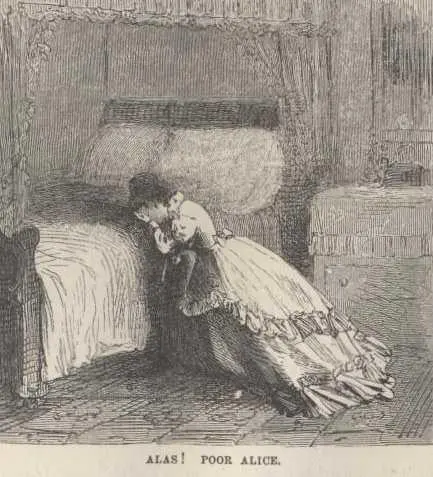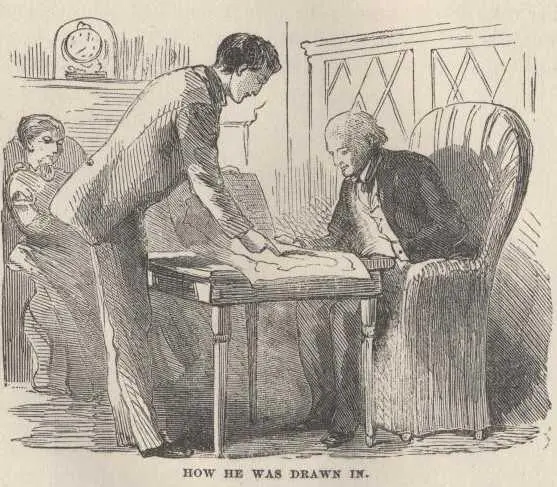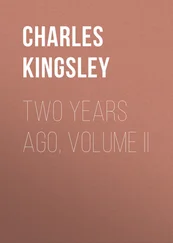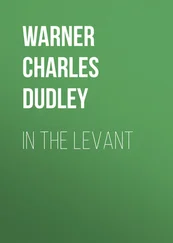Charles Warner - The Gilded Age / A tale of today
Здесь есть возможность читать онлайн «Charles Warner - The Gilded Age / A tale of today» весь текст электронной книги совершенно бесплатно (целиком полную версию без сокращений). В некоторых случаях можно слушать аудио, скачать через торрент в формате fb2 и присутствует краткое содержание. Год выпуска: 2004, Жанр: Классическая проза, на английском языке. Описание произведения, (предисловие) а так же отзывы посетителей доступны на портале библиотеки ЛибКат.
- Название:The Gilded Age / A tale of today
- Автор:
- Жанр:
- Год:2004
- ISBN:нет данных
- Рейтинг книги:3 / 5. Голосов: 1
-
Избранное:Добавить в избранное
- Отзывы:
-
Ваша оценка:
- 60
- 1
- 2
- 3
- 4
- 5
The Gilded Age / A tale of today: краткое содержание, описание и аннотация
Предлагаем к чтению аннотацию, описание, краткое содержание или предисловие (зависит от того, что написал сам автор книги «The Gilded Age / A tale of today»). Если вы не нашли необходимую информацию о книге — напишите в комментариях, мы постараемся отыскать её.
The Gilded Age / A tale of today — читать онлайн бесплатно полную книгу (весь текст) целиком
Ниже представлен текст книги, разбитый по страницам. Система сохранения места последней прочитанной страницы, позволяет с удобством читать онлайн бесплатно книгу «The Gilded Age / A tale of today», без необходимости каждый раз заново искать на чём Вы остановились. Поставьте закладку, и сможете в любой момент перейти на страницу, на которой закончили чтение.
Интервал:
Закладка:
And examples were not wanting to encourage him. He saw people, all around him, poor yesterday, rich to-day, who had come into sudden opulence by some means which they could not have classified among any of the regular occupations of life. A war would give such a fellow a career and very likely fame. He might have been a "railroad man," or a politician, or a land speculator, or one of those mysterious people who travel free on all rail-roads and steamboats, and are continually crossing and recrossing the Atlantic, driven day and night about nobody knows what, and make a great deal of money by so doing. Probably, at last, he sometimes thought with a whimsical smile, he should end by being an insurance agent, and asking people to insure their lives for his benefit.
Possibly Philip did not think how much the attractions of Fallkill were increased by the presence of Alice there. He had known her so long, she had somehow grown into his life by habit, that he would expect the pleasure of her society without thinking much about it. Latterly he never thought of her without thinking of Ruth, and if he gave the subject any attention, it was probably in an undefined consciousness that, he had her sympathy in his love, and that she was always willing to hear him talk about it. If he ever wondered that Alice herself was not in love and never spoke of the possibility of her own marriage, it was a transient thought for love did not seem necessary, exactly, to one so calm and evenly balanced and with so many resources in her herself.
Whatever her thoughts may have been they were unknown to Philip, as they are to these historians; if she was seeming to be what she was not, and carrying a burden heavier than any one else carried, because she had to bear it alone, she was only doing what thousands of women do, with a self-renunciation and heroism, of which men, impatient and complaining, have no conception. Have not these big babies with beards filled all literature with their outcries, their griefs and their lamentations? It is always the gentle sex which is hard and cruel and fickle and implacable.
"Do you think you would be contented to live in Fallkill, and attend the county Court?" asked Alice, when Philip had opened the budget of his new programme.
"Perhaps not always," said Philip, "I might go and practice in Boston maybe, or go to Chicago."
"Or you might get elected to Congress."
Philip looked at Alice to see if she was in earnest and not chaffing him. Her face was quite sober. Alice was one of those patriotic women in the rural districts, who think men are still selected for Congress on account of qualifications for the office.
"No," said Philip, "the chances are that a man cannot get into congress now without resorting to arts and means that should render him unfit to go there; of course there are exceptions; but do you know that I could not go into politics if I were a lawyer, without losing standing somewhat in my profession, and without raising at least a suspicion of my intentions and unselfishness? Why, it is telegraphed all over the country and commented on as something wonderful if a congressman votes honestly and unselfishly and refuses to take advantage of his position to steal from the government."
"But," insisted Alice, "I should think it a noble ambition to go to congress, if it is so bad, and help reform it. I don't believe it is as corrupt as the English parliament used to be, if there is any truth in the novels, and I suppose that is reformed."
"I'm sure I don't know where the reform is to begin. I've seen a perfectly capable, honest man, time and again, run against an illiterate trickster, and get beaten. I suppose if the people wanted decent members of congress they would elect them. Perhaps," continued Philip with a smile, "the women will have to vote."
"Well, I should be willing to, if it were a necessity, just as I would go to war and do what I could, if the country couldn't be saved otherwise," said Alice, with a spirit that surprised Philip, well as he thought he knew her. "If I were a young gentleman in these times—"
Philip laughed outright. "It's just what Ruth used to say, 'if she were a man.' I wonder if all the young ladies are contemplating a change of sex."
"No, only a changed sex," retorted Alice; "we contemplate for the most part young men who don't care for anything they ought to care for."
"Well," said Philip, looking humble, "I care for some things, you and Ruth for instance; perhaps I ought not to. Perhaps I ought to care for Congress and that sort of thing."
"Don't be a goose, Philip. I heard from Ruth yesterday."
"Can I see her letter?"
"No, indeed. But I am afraid her hard work is telling on her, together with her anxiety about her father."
"Do you think, Alice," asked Philip with one of those selfish thoughts that are not seldom mixed with real love, "that Ruth prefers her profession to—to marriage?"
"Philip," exclaimed Alice, rising to quit the room, and speaking hurriedly as if the words were forced from her, "you are as blind as a bat; Ruth would cut off her right hand for you this minute."
Philip never noticed that Alice's face was flushed and that her voice was unsteady; he only thought of the delicious words he had heard. And the poor girl, loyal to Ruth, loyal to Philip, went straight to her room, locked the door, threw herself on the bed and sobbed as if her heart would break. And then she prayed that her Father in Heaven would give her strength. And after a time she was calm again, and went to her bureau drawer and took from a hiding place a little piece of paper, yellow with age. Upon it was pinned a four-leaved clover, dry and yellow also. She looked long at this foolish memento. Under the clover leaf was written in a school-girl's hand—"Philip, June, 186-."

Squire Montague thought very well of Philip's proposal. It would have been better if he had begun the study of the law as soon as he left college, but it was not too late now, and besides he had gathered some knowledge of the world.
"But," asked the Squire, "do you mean to abandon your land in Pennsylvania?" This track of land seemed an immense possible fortune to this New England lawyer-farmer. "Hasn't it good timber, and doesn't the railroad almost touch it?"
"I can't do anything with it now. Perhaps I can sometime."
"What is your reason for supposing that there is coal there?"
"The opinion of the best geologist I could consult, my own observation of the country, and the little veins of it we found. I feel certain it is there. I shall find it some day. I know it. If I can only keep the land till I make money enough to try again."
Philip took from his pocket a map of the anthracite coal region, and pointed out the position of the Ilium mountain which he had begun to tunnel.
"Doesn't it look like it?"
"It certainly does," said the Squire, very much interested. It is not unusual for a quiet country gentleman to be more taken with such a venture than a speculator who, has had more experience in its uncertainty. It was astonishing how many New England clergymen, in the time of the petroleum excitement, took chances in oil. The Wall street brokers are said to do a good deal of small business for country clergymen, who are moved no doubt with the laudable desire of purifying the New York stock board.

"I don't see that there is much risk," said the Squire, at length. "The timber is worth more than the mortgage; and if that coal seam does run there, it's a magnificent fortune. Would you like to try it again in the spring, Phil?"
Читать дальшеИнтервал:
Закладка:
Похожие книги на «The Gilded Age / A tale of today»
Представляем Вашему вниманию похожие книги на «The Gilded Age / A tale of today» списком для выбора. Мы отобрали схожую по названию и смыслу литературу в надежде предоставить читателям больше вариантов отыскать новые, интересные, ещё непрочитанные произведения.
Обсуждение, отзывы о книге «The Gilded Age / A tale of today» и просто собственные мнения читателей. Оставьте ваши комментарии, напишите, что Вы думаете о произведении, его смысле или главных героях. Укажите что конкретно понравилось, а что нет, и почему Вы так считаете.












